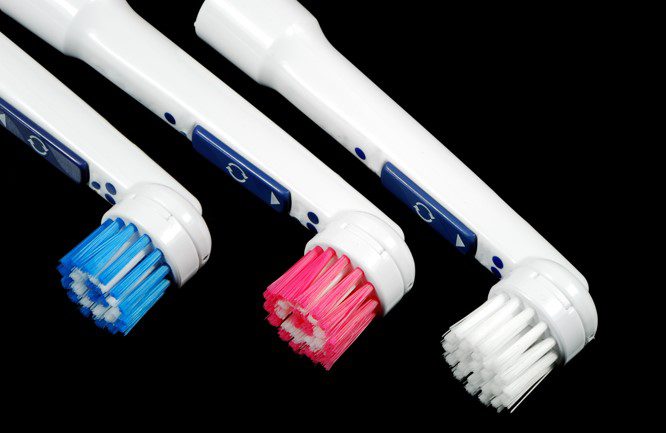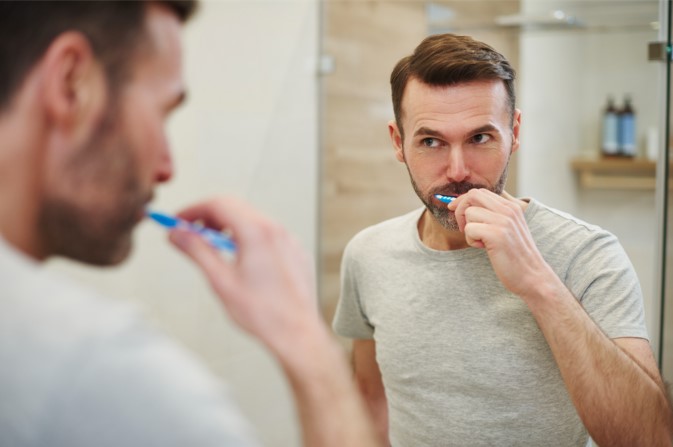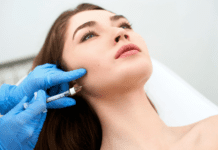Teeth Cleaning History And Tips
Teeth cleaning may be the oldest human habit, according to a paleontologist whose experiments suggest early man used grass stalks as toothpicks.
Scientists have long puzzled over tiny grooves, between 1.5 to 2.6 millimeters wide, found on ancient human teeth, in some cases on specimens dating back 1.8 million years.
Teeth Cleaning History
The answer may have been found by paleontologist Leslea Hlusko of the University of Illinois at Urbana-Champaign, the British weekly New Scientist reports. Dr. Hlusko spent eight hours grinding a piece of grass along a tooth taken from a baboon and replicated the experiment for three hours on a modern human tooth.
In both cases, the grooves closely matched the marks found on early hominid teeth as seen under an electron microscope. Grass has this abrasive effect because it contains large numbers of harsh silica particles, Dr. Hlusko said.
Researchers have warned that people who don’t brush their teeth at least twice a day are more than doubling the risk of heart disease.
A study found that those who aren’t careful about their oral hygiene are 70% more likely to develop heart problems than those who are.
Scientists say they must now find out whether the connection is because of bacteria in the mouth or if cleaning teeth regularly is just one of the things healthy people do.
Teeth Cleaning And Heart Disease
The study of more than 11,000 adults was led by Professor Richard Watt. He said: “We know Teeth cleaning is good for the gums, and the idea that the mouth is the source of most toxins that get into the body and cause inflammation goes back to the 19th century.
“It is too early to confirm definitively that bad oral hygiene can cause heart disease because we need more research in this area. But we have shown from this large Scottish study that those who brush their teeth most often tend to have better cardiovascular health.
“That could be caused by a plethora of reasons. People who clean their teeth are less likely to smoke and have better diets, for instance.
“But the message is that Teeth cleaning regularly is good for you and may even protect your teeth against a heart attack.”
The study headed by Prof Watt of University College London was part of the Scottish Health Survey and is published online in the British Medical Journal.
It is the first investigation into whether the frequency of cleaning teeth affects the chances of heart disease. Researchers took into account risk indicators such as obesity and family history before making the calculation.
The study also found that 70% brushed their teeth twice a day, and 60% visited the dentist every six months.
Electric Toothbrushes – Better Than Conventional?
Researchers say they have solved the controversy over whether good old-fashioned manual toothbrushes are as effective as new-fangled electric brushes in reducing dental problems.
They aren’t.
Some electric toothbrushes have been proven to be more effective at reducing tooth decay and gum disease prospects than manual toothbrushes, according to an analysis of research done over the past 15 years by three University of Toronto dental experts.
In an interview, oral pathology resident Dr. Douglas Brothwell said that a review of numerous studies comparing various tooth-brushing methods yielded proof that the newer generation of electric toothbrushes is superior.
Most Beneficial Type Of Electric toothbrushes
Electric toothbrushes with an oscillating-rotating action are the most effective in controlling “future disease” stemming from gum problems because the bristles can get in and out of gumlines better than manual or older types of electric toothbrushes, which merely vibrated and rotated, he said.

“There is no advantage to using other kinds of powered brushes such as vibrating, rotating, or sonic action electric toothbrushes,” said Brothwell and his co-authors in their paper published in the Canadian Dental Association Journal.
Oscillating type toothbrushes have been on the market for about the past five years. He said that consumers uncertain about what to use should read the packaging information to determine the mechanism of action.
“We’re not endorsing one brand over another,” said Brothwell, who admits to using an electric toothbrush himself.
Coquitlam dentist Dr. Bruce Ward, a spokesman for the B.C. College of Dental Surgeons said he agrees with the study results.
“Electric toothbrushes, especially the newer types, have small brushes with a back and forth action that allows people to get into all the places they need to brush,” he said.
“I recommend them to all my patients who are either lazy or who have trouble keeping their teeth clean using a manual brush,” said Ward.
No Apparent Advantage In Plaque Teeth Cleaning
In a recently published issue of Consumer Reports magazine (with the Canada Extra segment), electric toothbrushes are compared.
While the University of Toronto study looked at gum disease and cavities as proof of effectiveness, the consumer report judged the toothbrushes based on plaque levels.
Interestingly, the article states that powered brushes didn’t prove to be any better for removing plaque than manual brushing over three months.
But testers found the electric brushes comfortable and motivational, and they especially liked the one with a built-in two-minute timer, the amount of time it takes to do teeth cleaning properly.
Meanwhile, in other dental news, a study published in the Journal of the American Dental Association says that toothbrushes are fertile ground for bacteria. When family toothbrushes are kept in a standard holder, they can cross-contaminate each other, spreading cold and flu among family members.
The study author, a Wisconsin dentist, compared sanitization methods and found that putting toothbrushes in the dishwasher is the most effective method for ridding them of bacteria.
Cleaning Methods Of Electric Toothbrushes
Dr. Mary Zolnowski-Casey compared four methods — simply rinsing brushes under tapwater, soaking them in boiling water (which bent and warped the brushes), washing them in dish soap, and putting them through a dishwasher cycle.
While other studies have found that soaking toothbrushes in mouthwash for 20 minutes can also clean them well, she said it’s not as practical as the dishwasher.
“The dishwasher sustains a higher heat for a longer period than anyone can tolerate while handwashing dishes,” said Zolnowski-Casey, who researched to help her daughter with an award-winning science fair project.
Zolnowski-Casey’s research is making some dentists skeptical about the need to sanitize toothbrushes.
Said Dr. Gerardo Maupome, assistant professor in the department of preventative and community dentistry at the University of B.C:
“Toothbrushes are not particularly clean after they’ve been used to remove bacteria mixed with food debris, but that’s why they’re personal. I think an individual’s immune system should be able to handle the bacteria, though,” he said.
Brothwell said while there is a “theoretical risk” of spreading colds and flu through toothbrush contamination, he too questions whether there is a proven need for people to go so far as to sterilize their brushes.
“Bacteria are a normal part of everyone’s mouth, and I don’t know if it matters if you merely rinse your brush after use or whether you sterilize it. I’ve seen no evidence either way.”
Zolnowski-Casey said dentists go to great lengths decontaminating and disinfecting their office furniture and equipment.
“…chair disinfection, plastic wrapping, counter decontamination, autoclaving, gloves, goggles, and mask,” she said, adding, “Yet we are satisfied with only rinsing our toothbrushes when we get home. Which infection control guideline does that satisfy?”









